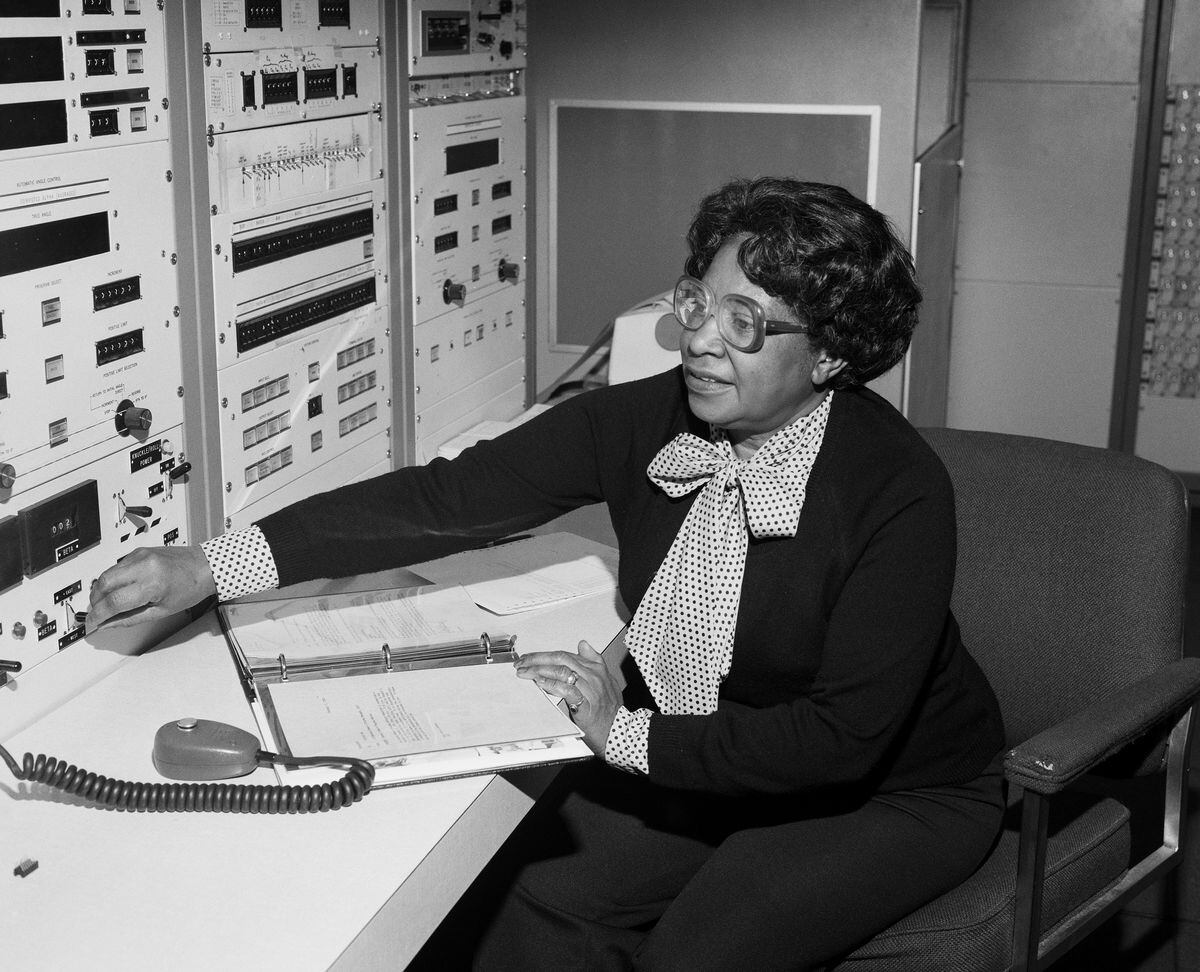In the early eighties one was hired as a research assistant to build large tables in pencil, full of economic figures with increments and percentages, on huge squared sheets.
The Japanese calculators that did all four operations were soon replaced by beautiful ones from Texas Instruments and later from Hewlett Packard that had the trigonometric functions, raised to any power, and could calculate formulas.
We felt smarter and more efficient, getting more done in less time and with fewer mistakes.
We were part of huge human computers.
Each one was in charge of a specific group of calculations, which, when consolidated, yielded the business, sales, balance and payroll accounts, as well as the national accounts, the balance of payments and the amount of money in a country.
Then came computers, spreadsheets, and the ability to make complex models.
Graph paper, pencil, and calculators became obsolete.
Everything appeared on a screen.
Lotus 123 and later Excel allowed you to move columns and rows at will, calculate equations of almost any level of complexity, save and share to disks.
Statistical programs greatly simplified the work.
We could give answers in minutes that used to take weeks.
We played with data and tested hypotheses that used to be the exclusive task of teachers.
For the students and assistants, a small revolution took place, similar to that of the revolver in the Wild West, which made the size of the person not matter, since the machines had matched them.
These advances stemmed from the human ability to handle all information in the form of zeros and ones, shrinking microchips down to nano-dimensions, and putting a smartphone
in the hand that replaces
everything that used to be done in the office, including books, indexed academic journals , newspapers, notices from wife and children, making appointments, movies,
podcasts
, plane reservations, hotels, restaurants, buying from the family market, tickets to movies and events, in short, almost the entirety of human life.
Chips have transformed everyone's lives, but something more amazing is what has happened in the lives of chips.
Today, to produce the most advanced chip in the world, lasers are used to hit an infinitesimal tin ball 50,000 times per second to pulverize it at a temperature several times that of the solar surface and thus produce extreme ultraviolet light, with which chemicals are printed photosensitive, with a type of lithography that creates 13.5-nanometer chips.
This size is one hundredth that of the mitochondria and half that of the coronavirus.
The complexity is daunting.
The cost of designing such a chip is hundreds of millions of dollars.
Building the industrial complexes for that type of lithography costs many billions of dollars.
Only Taiwan Semiconductors Manufacturing Company Limited (TSMC) is currently able to do so.
In 2021, the chip industry produced more transistors than the combined amount of all goods produced by all other companies, in all other industries, in all of human history, according to Chris Miller's book Chip
War
.
The flavor of the month is the so-called Generative Artificial Intelligence, which is a new class of machine.
It uses that tremendous computing power to grasp the symbols of language, music, and programming, and use them in ways that seem creative.
It can even see emotions better for us, in ways that could replace the work of many people.
The so-called ChatGPT and now Bard AI Chatbot dig through practically oceanic amounts of information and text, guessing what the next word in the sentence should be.
After a few billion guess-compare-improve-guess cycles, this approach gives great statistical power to the answer and impressive quality to the text you write.
If you ask the questions well, which requires iterating with the machine, it becomes clear that Chat-GPT learns faster, more thoroughly, and sharper than we do.
Someone calculates that, by 2025, 90% of online content could be generated by Artificial Intelligence systems.
It is predicted that Artificial Intelligence could replace about half of the jobs in the United States in the jobs of paralegals, copywriters, digital content producers, computer programmers and journalists.
It is a puzzle why economists are not mentioned in these alarm bells.
However, there are several problems:
chatbots
are like the wise guy in the office, who answers everything with supreme confidence, regardless of the accuracy of his sources and the quality of his analysis.
In that it is different from the Google search engine, which directs people to other pages, makes no claims about its veracity and leaves the viewer to decide what to use and what not.
What to do with biases, prejudices, misinformation and the risk of plagiarism?
My 16-year-old son says that using ChatGPT is not the same as plagiarizing, since no one is being copied.
I think the opposite, because one would be attributing a job and a product that is the result of a programming effort by a machine, creators of algorithms and an unusual capacity for consultation and computing, beyond our reach.
For example, someone asks if AI can patent an invention.
Now, as dramatic as these changes in daily life and work may seem to us, they pale in comparison to those experienced by the generation of our parents and grandparents, who left their town by mule or on foot in 1925 and had to learn about the telegraph, the automobile, radio, running water in bathrooms and kitchens, electrical wiring, television and airplanes, among many other advances.
These transformations were perhaps more dramatic for them than computing capacity, computers,
smartphones
, etc. have been for us.
What is difficult for machines is asking their own questions, because that needs purpose.
What do I want, why, how and when?
The machine can help answer the how and when.
But the what is something that defines the human being from their specific circumstances of time, manner and place.
Let's go to the Austrian philosopher Friedrich A. Hayek, Nobel Prize winner in Economics, who in his best-known work on the use of knowledge in society said that there is common information and private information.
Every human being is a user of information from and about others, and about the things that surround them.
But, more crucial, he is a producer and generator of new information.
Much of the information that was previously private is now standardized and available: what we buy and where, what captures our attention on the cell phone, where we go on the road, who we talk to, in short, all of this is already known by Google, Apple, Facebook , Microsoft, among others.
Those companies market those continuous crops of information for everyone's consumption.
It is "common knowledge".
But nobody knows the doubt that eats me, the idea that I just had, the technology that I can design, the market that I seek to satisfy.
Those ideas and sensations lead us to develop a product, write an idea, a theorem, a novel or sing a new song.
That is what we have always done and that no computer knows: what is my purpose, what am I looking for today, what will motivate me tomorrow or worry me the day after tomorrow.
That is the essence of human existence.
The fact that products from the machines are now going to be added will increase the accumulation of experiences.
But that is not why one will replace the other.
As always, the fate of each one will depend on the quality of their private information, how it learns and improves, and how much their contribution will eventually be worth when it becomes public.
The key will not be how well ChatGPT responds, since that is what thousands of engineers and trillions of bits of information deal with, computed at a speed of 1,000 trillion calculations per second, as the Nvidia (American company) and Biren chips do. (China).
The amazing thing is that it is now widely available, with the speed, precision, and ability to produce text, images, and symbols.
The sad thing would be that we don't get the most out of it because we don't know what to ask, or we stay to find out frivolities.
Juan Carlos Echeverry
is a PhD in Economics.
He was Minister of Finance of Colombia and CEO of Ecopetrol.
Subscribe here
to the EL PAÍS newsletter on Colombia and receive all the latest information on the country.
Sign up for free to continue reading
LOGINSIGN UP
Or subscribe to read without limits







/cloudfront-eu-central-1.images.arcpublishing.com/prisa/GOC4OMOSPRGHBC3AGTSKUSEWDY.jpg)

